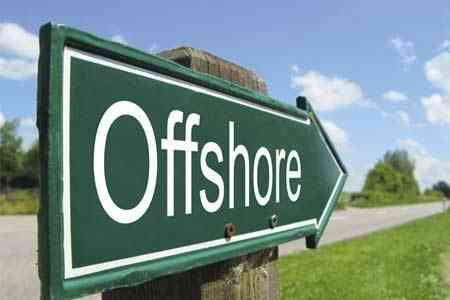


ArmInfo. Thanks to the efforts and consistent work of the RA Ministry of Finance, Armenia was removed from the "gray list" of countries that do not cooperate with the European Union in tax matters (the EU list of non-cooperative jurisdictions for tax purposes ).
The European Economic and Financial Council decided to remove Armenia from the "gray list" from the list of countries actively using the "gray offshore". As the press service of the RA Ministry of Finance reports, the decision was made at a meeting of EU finance ministers on February 18.
"Being in the gray list threatens the country's reputation. Armenia was considered a country that does not cooperate with the European Union in tax matters. Removing these countries from the list will be a good incentive for EU partners to consider Armenia as a country cooperating with tax authorities ", Head of Revenue Policy and Administration Methodology Department of the Ministry of Finance of Armenia Ori Alaverdyan said
To recall, in 2017, Armenia made three obligations in order to avoid the risk of being included in the "gray list". According to Ori Alaverdyan, by the efforts of the Ministry of Finance of Armenia, Armenia has fulfilled all its obligations. In particular, the Republic of Armenia revised the RA Tax Code, limiting tax- free provisions for export-oriented enterprises, and officially joined the Organization for Economic Co- operation and Development (OECD) BEPS program in February 2019, and also proved its commitment to localizing 4 minimum program standards specified in tax legislation. "We are currently working with specialists from the OECD Secretariat. This is a long process, but in all cases the standards will be updated," Ori Alaverdyan says.
In addition, according to him, on January 24, 2018, Armenia signed and subsequently ratified the Council of Europe Convention on Mutual Administrative Assistance in Taxation.
To recall, the goal of creating a list of "non-cooperative" jurisdictions was announced "establishing fair corporate tax regulation and protecting Europe from aggressive tax planning schemes. Work on the list has been ongoing since spring 2016. Currently, 92 offshore areas are under constant monitoring by the EU. Feature" blacklist "lies in the fact that it is the same for the entire European Union, while the issue of specific measures in relation to its participants is decided independently by each EU country. Among other things, such measures may include discriminatory restrictions when working with counterparties from blacklist jurisdictions - withholding tax at source, limiting or prohibiting the application of tax benefits, the requirement to provide additional documentation, etc. As for the gray list, it currently has 34 jurisdictions in the process of correcting deficiencies. Finally, there are 43 offshore companies on the white list, which are fully consistent with European notions of "transparency and good faith in the tax system".